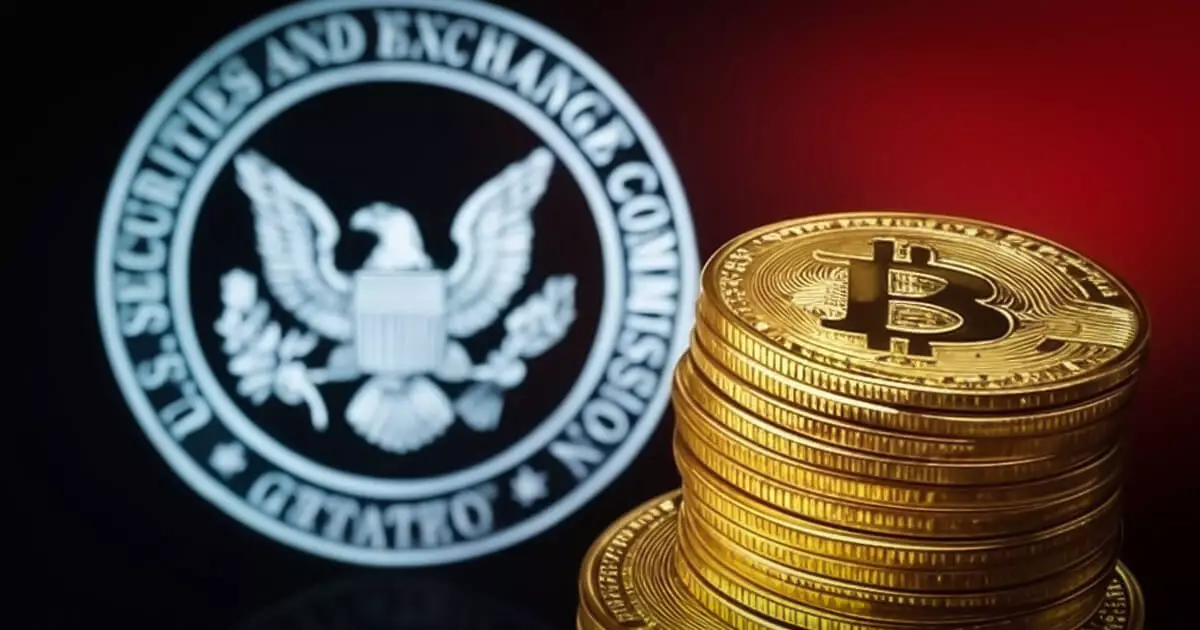As the United States prepares for a transition in its executive leadership, significant changes may also be on the verge within the financial regulatory landscape, particularly concerning cryptocurrencies. Reports suggest that the new administration, with President-elect Donald Trump at the helm, could prompt a substantial rethinking of the Securities and Exchange Commission (SEC) stance on digital currencies. The upcoming shift may influence how the SEC engages with crypto firms and ultimately redirect regulatory incentives in an industry characterized by rapid evolution and legislative ambiguity.
Essentially, the conversation around the SEC’s approach to cryptocurrency has typically been dominated by stringent regulatory enforcement, with many firms feeling the pressure of legal actions and compliance burdens. However, two key figures within the SEC, Commissioners Hester Peirce and Mark Uyeda, have expressed a more favorable viewpoint toward crypto innovation. Their potential collaboration in an impending policy overhaul could signify a more lenient and proactive approach, focusing on defining criteria for when digital assets are categorized as securities. This pivotal differentiation is paramount, as many crypto firms have operated in a climate of uncertainty, hampering their ability to innovate and grow.
The rationale behind these anticipated changes is multifaceted. As the administration brings in Paul Atkins, a former SEC commissioner and Trump’s choice for the chair, the narrative is likely to shift toward accommodating crypto’s transformation and fostering a conducive environment for technological advancement. Atkins has a history of advocating for less restrictive policies within this realm, which could embolden firms previously wary of regulatory scrutiny to explore growth and investment opportunities more readily.
At the core of these potential SEC changes is an acknowledgment of the economic challenges that restrictive policies impose on companies in the crypto space. Many businesses have faced significant compliance costs—often burdensome for startups and smaller enterprises—resulting from existing guidance that critics claim discourages them from holding cryptocurrencies for clients. The incoming SEC leadership’s decision to review previous guidance could signal a heightened awareness of the need for a balanced regulatory framework that promotes innovation while protecting consumer interests.
The likelihood of policy revisions could make the crypto environment less hostile, fostering a more stable climate for investment and technological development. This approach would not only encourage domestic firms but potentially attract foreign entities looking for a more accommodating regulatory jurisdiction. The SEC’s revised focus may even benefit the broader financial ecosystem by integrating cryptocurrency into traditional finance more smoothly.
Despite the anticipation of a regulatory landscape more favorable to cryptocurrency, several cautionary notes merit consideration. Legal experts are apprehensive about the ramifications of pausing or dismissing ongoing enforcement actions. Philip Moustakis, a former SEC attorney, emphasized that taking such unprecedented steps could undermine the agency’s credibility and further complicate the already complex legal definitions surrounding digital assets.
Furthermore, the SEC’s potential inclination to freeze litigation solely based on ongoing assessments, especially for cases lacking fraud allegations, raises significant ethical questions. Critics argue that such a move might politicize regulatory enforcement, resulting in a system that adapts too flexibly to the whims of administration rather than solidifying legal standards that protect investors and market integrity.
The road ahead appears strewn with both opportunity and caution. The prospective changes within the SEC could reshape the regulatory landscape, potentially setting a precedent for future administrations. However, finding a middle ground—while balancing innovative approaches and stringent protections—will be crucial. The SEC must tread carefully, ensuring that any policy shifts do not erase essential consumer protections or disturb the legitimacy established within the regulatory fabric.
As President-elect Trump steps into office, the ramifications of potential changes within the SEC could leave an indelible mark on the industry. Stakeholders will undoubtedly be observing how these developments unfold, signaling a critical turning point in understanding the dichotomy between innovation and regulation in the evolving narrative of cryptocurrencies. The sector stands at a crossroads, with the potential for a collaborative, future-oriented regulatory environment hinging upon the decisions made in the forthcoming months.
















Leave a Reply